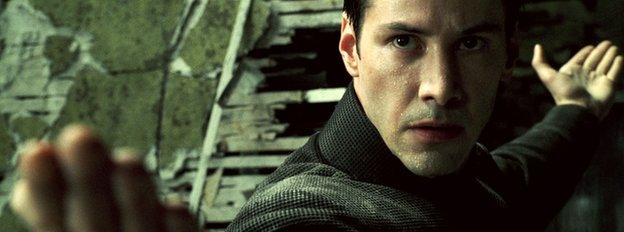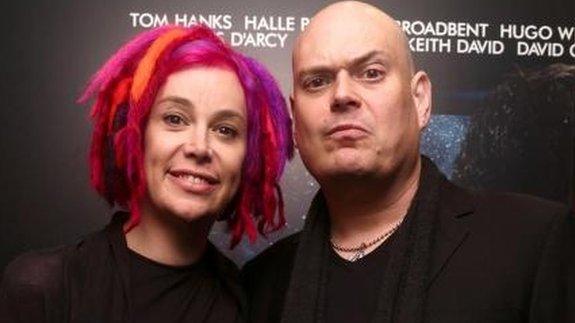Matrix film trilogy did not plagiarise, judge rules
- Published

Keanu Reeves learned kung fu to play computer hacker turned freedom fighter Neo
A legal claim alleging the Matrix films were based on another screenplay has been rejected by a judge in California.
Judge R Gary Klausner ruled there was "no substantial similarity" between the Warner Bros trilogy and The Immortals, a screenplay Thomas Althouse claimed he submitted to the studio in 1993.
In his complaint, Althouse listed 118 alleged similarities between the works.
But the judge ruled they were "too general for copyright protection... or are commonly used, unoriginal ideas".
Released in 1999, The Matrix tells of a computer hacker, played by Keanu Reeves, who discovers the world he lives in is a computer simulation created by machines.
Directed by Andy and Larry (now Lana) Wachowski, the film was followed by two sequels - The Matrix Reloaded and The Matrix Revolutions - which were shot back-to-back and released in 2003.
Althouse alleged their plots were inspired by his screenplay, in which a CIA agent tries to stop a cryogenically reanimated Adolf Hitler destroying non-immortals in the year 2235.

The Wachowski siblings wrote and directed all three films in the Matrix trilogy
Yet Judge Klausner ruled, external "the only similarity in plot [was] that both stories portray a protagonist attempting to prevent a dominant group from oppressing and annihilating a subservient group".
"The basic premises of The Matrix Trilogy and The Immortals are so different that it would be unreasonable to find their plots substantially similar," his ruling continued.
"Examining the protectable details in the two works, no jury could reasonably conclude that The Immortals has substantially similar expressions of ideas to The Matrix Trilogy."
Since making the Matrix films, the Wachowski siblings have co-directed films including Speed Racer, Cloud Atlas and Jupiter Ascending - due to be released this summer.
- Published6 February 2014

- Published28 March 2013
